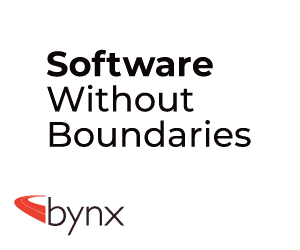
Demand for a more flexible alternative to purchase or leasing is driving growth in the market for mid-term rental. With ongoing uncertainty in the economy, the industry has a bright future, according to Phil Jerome, managing director of Meridian Vehicle Solutions. John Maslen reports.
Companies have traditionally had a relatively simple choice when it comes to fleet finance, with decisions centred on buying or leasing.
As the business environment has become more complex, many businesses have required an alternative to these choices, which has cultivated a new wave of finance offers focused on mid-term hire.
The concept is relatively simple, with offers aiming to fill the gap between daily rental and long-term car provision, through products that provide vehicles from a few months to one year.
Pricing varies depending on the business model, but it typically provides savings on daily rental rates and is competitive with a long-term lease.
Mid-term hire blurs the lines between daily rental and long-term leases, especially as leasing companies and rental providers are adapting their own offerings to cater for this emerging market.
Customers are using the services for a range of needs, such as filling gaps in vehicle provision while drivers wait for a new car to be delivered, or just accessing a more flexible alternative to a traditional fleet.
Growth of mid-term rental
The growing market is also attracting specialist providers, such as Meridian Vehicle Solutions, which offers medium-term rental cars on contracts ranging from six-12 months at rates that are competitive compared to long-term leasing.
Since its launch in 2015, its core business model has been providing white label supply of medium-term rental for leasing companies, but brokers account for an increasing proportion of demand, in addition to direct sales to fleet operators.
What sets Meridian apart from the vehicle hire sector is its provision of new vehicles to customers, with delivery handled directly by the manufacturer’s franchised dealer network.
This ensures that service standards for customers reflect the new car experience, while dealers also provide a perfect national base for vehicle storage.
The focus on new cars reflects its core market. Managing director Phil Jerome (pictured) identified a niche in which employers struggled with vehicle provision for new employees, particularly senior staff.
“After all the hard work of attracting the right team, their first experiences on joining were often negative,” he said. “While they waited for their company car to be ordered and delivered, they were handed a daily rental car, which might be a significant downgrade or have had extensive use.
“It was demotivating and a poor first impression. We are able to provide the choice of car that is expected, in showroom condition.”
Meridian funds vehicles using hire purchase or finance lease, with volume discounts key to ensuring it can provide rates that are competitive to leasing.
It can then secure strong residual values as a source of typically low-mileage, quality used stock direct to the trade.
An expanding market
The service has expanded to cater for demand beyond replacement car hire, as companies look to source more flexible vehicle provision in response to uncertain economic conditions.
For example, the transition to new vehicle CO2 emissions standards (WLTP) has disrupted the UK company car market.
Companies are wary of making long-term commitments as the new standards, launched in April, could lead to vehicles having much higher official emissions figures than expected when they were ordered, and therefore higher tax bills.
Instead, companies can order mid-term hire vehicles through Meridian to tide them over until clarity returns to the company car sector.
Flexible fleet provision can also help companies through periods of change or uncertainty, such as expansion after winning contracts, where the fleet can be expanded without committing to long-term costs.
Jerome, a former business development director of Zenith, one of the UK’s largest leasing companies, said: “We have seen many businesses use medium-term rental because, at least in part, they wanted to put off making a decision on long-term leases until things felt more stable.”
Once companies swap cars to a six-12-month replacement cycle, they typically want to continue, he said.
“Our rates are not that much more expensive than conventional three-to-four-year leases,” Jerome added. “It will take a fairly decisive move towards greater economic and market certainty before they look again at longer-term leases.”
In total, 25% of Meridian Vehicle Solutions orders are being used for permanent company car provision.
“The emergence of medium-term rental has started to change the picture and fleets are now looking at a spectrum of acquisition methods, with the new option spanning the gap between the two extremes of daily rental and leasing,” he said.
Leasing and daily rental companies have responded to this blurring of the lines between their two products by launching their own mid-term leasing offers, such as Month or More from Enterprise rent-a-car or LeasePlan Flexible, which offers cars for three months or longer. In the commercial vehicle market, companies such as Reflex Vehicle Hire offer flexible rental on a full range of vans, in addition to cars.
The flexible vehicle market is also expanding with the introduction of subscription products from companies including Wagonex and Drover, through which customers pay a subscription fee to access vehicles for as long as required and swap them without penalty.
Meridian Vehicle Solutions has some aspects of the subscriptions business model, with no deposit, short contracts that allow customers to swap relatively frequently if they require, and a vehicle supply base focused around dealers.
Indeed, Jerome argues that dealers could use mid-term rental as a way of doubling sales, by offering vehicle hire to customers awaiting delivery of their new car.
He said: “The dealer has effectively sold two cars for one sale and, in some cases, they also buy back the rental car from us to put into their used approved programme. It is a very effective way of generating sales and stock while meeting customer needs.”
The key difference is that subscription programmes tend to focus on multiple hires of used stock to extract greater value, whereas Meridian normally generates its revenues from a single hire before defleeting vehicles.
This business model requires careful management of vehicle condition, as prices for its nearly new de-fleet stock are particularly affected by damage.
Furthermore, like subscription customers, customers are more frequently exposed to potential damage recharges than those who operate vehicles for three years or more.
“As we are providing a brand-new car, there is an expectation that you have to look after it. If you damage all the alloy wheels, they will need repairing, it’s just that you don’t have three years before handing the vehicle back.”
Emerging consumer demand
While corporate customers may have a fleet manager overseeing them, the current industry shift to serving more consumers in the search for growth will raise new challenges.
Currently, 40% of Meridian’s demand comes from brokers, and a similar amount from leasing companies, with 20% direct from large corporates.
However, consumers represent an increasing proportion of broker business, including drivers who have opted out of their company car in favour of a cash option.
Broker customers also include drivers who have ended a personal contract purchase agreement and now must wait for their next car to be delivered; alternatively, they have decided not to renew their contract and want to try a different finance option.
This year, Meridian Vehicle Solutions is planning to respond to this rise in consumer interest with the introduction of a used vehicle personal contract hire product.
This serves two purposes, as it will meet growing demand for PCH and extract greater value from its vehicle assets that would otherwise have been sold to trade buyers for lower margins.
Jerome said: “The launch will mean we are not reliant on a single product channel, while we could also provide a white label service to offer this through other providers.”
Like many other funding businesses, the next challenge is driving long-term growth in its 600-vehicle fleet, which can be more difficult because shorter customer holding periods mean regular renewals are needed to just maintain the status quo.
“Including current orders, our fleet will rise to 1,000 vehicles and we are expecting it to grow,” he said. “Medium term rental is all about providing a flexible, cost-effective alternative in situations where long term leasing is unsuitable and daily rental too expensive. This means that it is the best solution in many kinds of fleet situation.”


